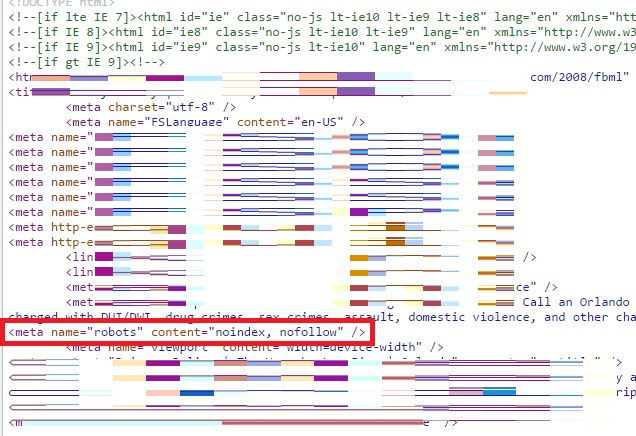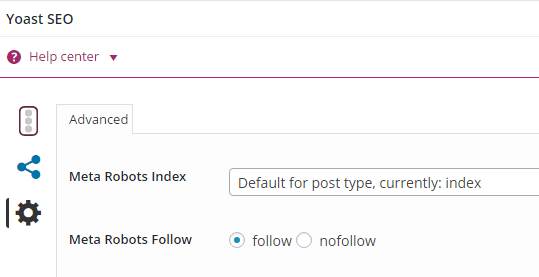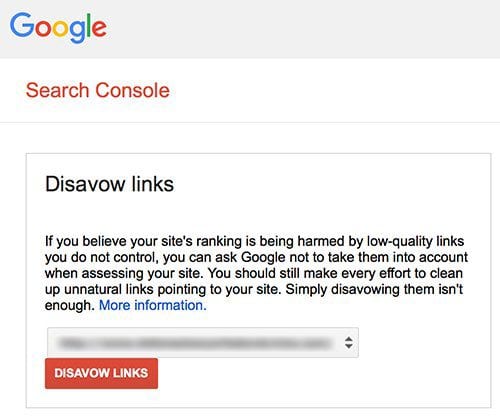In the last blog, we talked about exploring the notion of an SEO company harming your site and proceeding to withhold information you don’t realize you’ll need later on. Since SEO is a bit more complicated than simply creating a Yelp page, several directories, and a Facebook page, it is important to be aware of some other, not as obvious, SEO tasks that you should keep track of. These will almost all be featured within Google Webmaster Tools, so hopefully, I’m not saying this too late. If it is towards the end of the relationship, it’d be important to arrange some sort of access.
Since SEO performed by agencies mostly takes the form of content and link building, you’ll mostly be looking at these factors. What you’re looking for is instances of major changes around a time when you end your relationship. For example:

If you ended your relationship not too long before the decrease in pages, you’re looking at a strong case for sabotage. You could have had pages no index, no followed, or completed deleted. Keep in mind, we’re talking about scenarios where the SEO agency or consultant straight up wants to undo the work they’ve done for you or all around harm your website and business.
Also, we’ve had a client that completely got trashed online by one simple button on WordPress under Reading in Settings on the WP Dashboard.
 Yes, that one is going to do some damage if it gets checked. Just look for anything on the website that says “No Index, No Follow” whether it be under settings for the page in the widely popular All in One SEO and Yoast plugins which you can see below. Or look at page source to see
Yes, that one is going to do some damage if it gets checked. Just look for anything on the website that says “No Index, No Follow” whether it be under settings for the page in the widely popular All in One SEO and Yoast plugins which you can see below. Or look at page source to see  “No Index, No Follow” towards the top.
“No Index, No Follow” towards the top.
No index, no follow should really only be used for privacy policies, contact pages, and other pages where you know the page will not contribute SEO value or could be flagged for duplicate content. If you’re seeing it for main pages, you have a problem.
Once you know your content hasn’t been tampered with, it is time to move onto links, which is likely quite a bit harder to keep an eye on.
One way you can verify how links have been coming along via Webmaster Tools is to go to Search Traffic and then Links to Your Site. From there, go ahead and click on the “More >>” under Who Links the Most. You’ll see a “Down Latest Links” button towards the top. This will be a list of a decent amount of the most recent links from other sites to your website, fortunately curated very well by date. You’ll be able to get an idea of what link building efforts your SEO agency or consultant has implemented. From here the rest is fairly simple – check out the links Google has provided in the excel. If they are no longer active or there is no link anywhere on the page back to your website, then the links have been altered.
 Another situation we had a client deal with is the infamous Google disavow link tool. This is a powerful tool for removing spam links that you may have received over time – in this case, a vindictive SEO team may use the tool to quickly remove all the links they’ve built for you. You’ll want to check that URL while logged in to make sure there has never been an uploaded file with the goal of removing beneficial links to your site. Keep in mind that your SEO may have done it at some point to actually legitimately remove spam links.
Another situation we had a client deal with is the infamous Google disavow link tool. This is a powerful tool for removing spam links that you may have received over time – in this case, a vindictive SEO team may use the tool to quickly remove all the links they’ve built for you. You’ll want to check that URL while logged in to make sure there has never been an uploaded file with the goal of removing beneficial links to your site. Keep in mind that your SEO may have done it at some point to actually legitimately remove spam links.
So there you have it – hopefully during this blog series you’ve learned how to identify if the efforts of an SEO have actually worked and if you decide to end your relationship, you can ask for the appropriate information to proceed with doing it yourself and/or another agency, and if your former agency/consultant decided to undo the work you paid them for and entrusted them to keep indefinitely. After this series, you may be wondering to yourself – do I really have enough evidence to prove there was something unethical that happened afterwards and even if I did, what can I do with that information and what can I do to them?
This part is really an unfortunate/fortunate situation – a lot of people are ethical enough in this industry to the point where I don’t have dozens of horror stories. But I also don’t have the definitive plan of action to put in motion should you be confident with your findings – from my experience, I can reiterate that most of the time agencies will redo the work if you prove to them work is missing. From there you likely should just give them the benefit of the doubt. If you don’t wish to, I would say getting another SEO agency to do a thorough, expert audit to prove tampering could be effective. Think of it almost as getting a detective from a forensic SEO agency (which is a real concept – you can read more here about the subject). We’d be more than happy to help you there – basically every initial audit we do for potential clients has a degree of forensics within it.
One bad experience with an SEO shouldn’t spiral into contempt for the industry – the vast majority of relationships between a business and SEO are beneficial and make sense from a ROI and marketing standpoint. Some relationships work out so well that within a relatively short period of time, businesses experience growth more rapid that any point of their life-cycle by far. I speak with hundreds of business owners every year that have read all about SEO, understand more or less how it can be so integral to the success of their business, but just haven’t had that meaningful relationship to secure their positive outlook on the industry. Most have dealt once or twice with our first discussion – SEO simply not working out for them. A few here and there have gone through the frustrating process of getting account passwords and website files back from their developer that did their marketing afterwards, and made excuses about the inordinate amount of time to gather the files for them to receive. I’m glad to say out of all the business owners I’ve talked to, there was only one that suffered from direct link sabotage. It was evident once Google Webmaster Tools was accessed. It’d be nice, of course, if it never happened at all.
If you’ve ditched your old SEO and you are looking for a new agency, or you’re looking for a site audit/forensic SEO who can make sure your site wasn’t sabotaged in any way, give us a call.

The ongoing digital revolution is transforming the way that all businesses interact with clients and customers. Consumers rely heavily on digital channels for researching products and services and expect to make buying choices with the swipe of a finger. For organizations that want to remain competitive, having a defined digital marketing strategy and execution plan is essential for successful outcomes. With a demonstrated history of creating and implementing strategic digital marketing initiatives that drive growth, I am committed to delivering real, measurable results for my clients.


